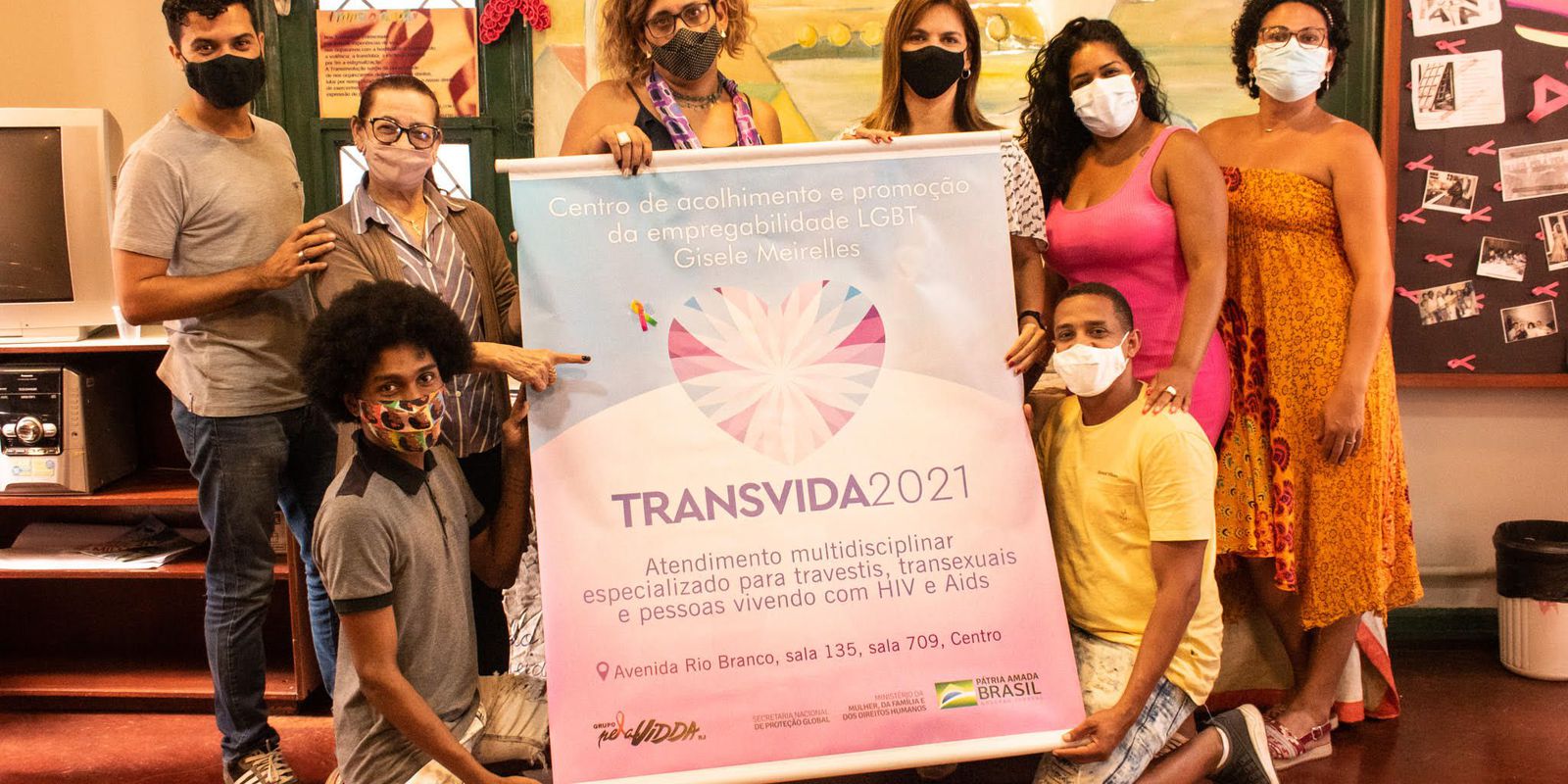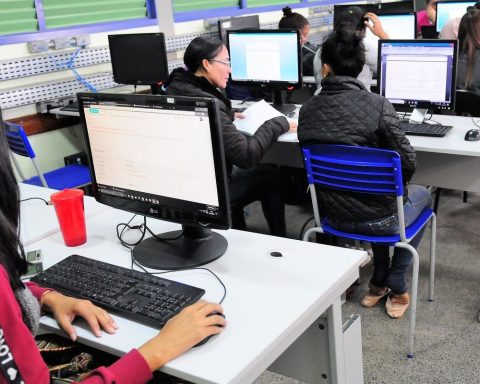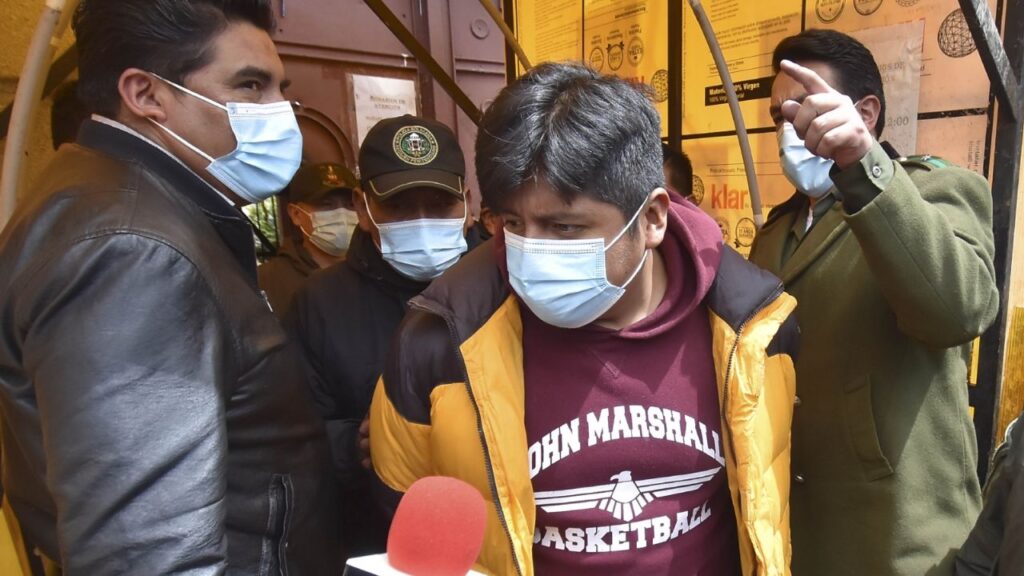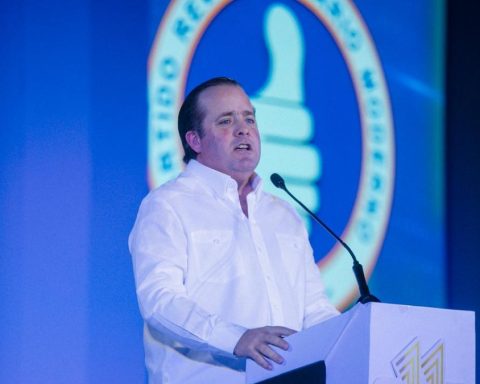Since 2018, transgender people can seek civil registry offices in the country to correct their first name and gender on their birth or marriage certificate and, from there, modify other personal documents.
Almost four years after this achievement, however, transgender activists and human rights defenders heard by the Brazil Agency for the Trans Visibility Day, celebrated today (29), point out obstacles to the realization of this right and mobilize for the population to have access to documents that respect their gender identity.
For the president of the National Association of Transvestites and Transsexuals (Antra), Keila Simpson, the barriers already start in the costs of obtaining the necessary certificates to make the request at the notary, which include expenses with travel to go to the organs to request them.
Once this step is over, the rectification of the civil registry at the registry office also requires the payment of fees that vary from state to state. Keila explains that the information that it is possible to request free services does not always reach the population.
“The existing bureaucracy and non-gratuity are a big obstacle. I’m talking about a population that lives in underemployment, often doesn’t have resources, and that has to pay for certificates. For many people it may seem derisory values, but for trans people is significant and many cannot afford it”.
Keila was one of the trans activists who attended the National Congress on January 29, 2004, for an act of respect that was considered historic and set the date for National Trans Visibility Day.
The president of Antra recommends that trans people who do not know how to ask for the correction of their documents to seek public defenders and human rights organizations in their region to seek guidance. In addition, it indicates that there are guides available on the internet, as in own site of the association.
“The person goes on living without identifying himself and goes through difficulties, due to violations of law, due to public embarrassment when he needs to present the document. And he will continue to suffer this violence that he suffers because there is a bureaucracy in this process that needs to be overcome”, he says. Keila Simpson.
Rules
The rectification of name and gender in notaries follows the rules of Provision No. 73, published in 2018 by the National Council of Justice. In addition to a birth certificate, RG, CPF, voter registration and other identification documents, certificates from the Electoral Justice and Labor Courts, certificates from the civil and criminal distributors of the place of residence, certificate of criminal execution, certificate of notaries of protests and certificate from the Military Justice, if applicable.
Having gathered all these documents, the trans person can go to the registry office to request that the first name and/or gender on their birth certificate be corrected. If married, the person needs the consent of the spouse to change the marriage certificate.
The provision of the CNJ only became possible after the Federal Supreme Court (STF) recognized, in 2018, the right of trans people to correct their documents in a notary’s office without proving any type of sex reassignment surgery.
wait and humiliation
President of the Group for Vidda, Maria Eduarda Aguiar recalls that the rectification of her documents, obtained before the decision of the STF and the provision of the CNJ, had to be carried out by judicial means.
“I only got the civil rectification after a psychiatrist’s report. Someone else had to say who I am. Today, it takes 90 days, but my process took three years. And there were people who waited longer, up to six years”, says she, who remembers that the process required proof of sex reassignment surgery, hormone treatments and still depended on the approval of the judge who was responsible for the case.
While waiting for her documents, Maria Eduarda experienced situations that she classified as humiliating, in which she was accused of inventing a name that she could not prove was hers.
“Only those who experience it know what it is. It’s torture to have to be explaining yourself all the time. You go to a place and you have to explain and ask, for God’s sake, for the person to address you in the social name. This is humiliating, there is no dignity in it. The rectification gives the person citizenship, because they don’t need to keep explaining themselves, they present the document and that’s it”.
As an activist and lawyer, Maria Eduarda decided to help other trans people to obtain the adequacy of their documents and avoid these constraints. Grupo pela Vidda carried out a collective effort through the TransVida project, between October and December 2021, to guide trans people in obtaining certificates and requesting rectification. When following up on these cases, she says she encountered barriers that go beyond bureaucracy.
“We have seen notaries demanding documents that are not provided for, or requiring documents that have already been presented”, she says, exemplifying with a case in which the notary also demanded certificates in the applicant’s social name, which is not provided for by the CNJ.
The lawyer also reports more than one case in which the applicant did not receive a protocol proving that he made the request. “The person ends up having to re-order”.
The task force managed to carry out 70 consultations in Rio de Janeiro, and, in some cases, it was necessary to accompany the applicant to the registry office to question these obstacles. “My fight is to provide a service so that the decision of the STF is carried out. And we have achieved good results”.
One of the stories that Maria Eduarda began to follow even before the task force was that of Thaísa Correia, 31 years old. The hairdresser’s assistant made her first attempt to rectify the documents in 2014, still in court, but the process went slowly until she decided to ask the lawyer for help, in 2020.
In Thaísa’s case, the main difficulty was getting the registry office in her hometown, in Alagoas, to send the certificate for rectification in Rio de Janeiro. “As I didn’t have the money to go there, it took a long time. If I had, I believe it would have been much faster,” she says, who only managed to complete the process at the end of 2021.
“Many trans still don’t even know where to start. I had the help of Duda [Maria Eduarda] and another friend who already did the rectification, and because of them two I managed to climb it. For a lay trans woman, it’s very difficult.”
In the almost seven years that she lived waiting to have her gender identity recognized in documents, Thaísa says that she lost work opportunities and faced constraints when seeking services and presenting documents with the name she received at birth.
“Even if I sent the curriculum just with the name of Thaísa, when I was called I had to present the documents. In the first reading, I was read as a woman, but then came the embarrassment”, she recalls. “When I received the certificate, the feeling was of liberation, because after so much struggle they finally respected my identity. It’s a relief.”
Efforts
Faced with the difficulties and costs that the process can impose, more and more joint efforts have taken place to offer alternatives to the trans population that does not have the resources to request rectification.
In Rio de Janeiro, the state Public Defender’s Office, in partnership with the Itinerant Justice and the Oswaldo Cruz Foundation (Fiocruz), guaranteed 96 document corrections in a single day, on November 26.
The coordinator of the Nucleus for the Defense of Homoaffective Rights and Sexual Diversity (Nudiversis), defender Mirela Assad, says that those interested in obtaining rectification find a more agile process in the collective effort, because the presence of the Itinerant Justice allows that, in a single day, those served already leave with a sentence that can be taken to the registry office to change the name and gender.
“The difference is that in a single day, the person qualifies. They don’t need to be kicking around to get certificates, which for poor people is a costly thing”, explains the Nudiversis coordinator.
This model also allows assistance to non-binary people, who still depend on court decisions to have their gender recognized in their documents. Among the corrections carried out in the last edition of the task force, 47 were of non-binary trans people, who left the task force with a court decision obliging the registry offices to correct the gender of their civil records to non-binary, with neutral language spelling.
“When we filed the petition and the judge handed down the sentence, that was the first victory, because there was a written ruling that the gender should be rectified to non-binary, in neutral language. We were apprehensive if the civil registry offices would comply , but for our happiness, they are complying”, says the defender.
A new task force is scheduled for February 18, if the epidemiological scenario of covid-19 allows, ponders the defender. Mirela Assad says that, because of the pandemic, it was decided to carry out the task force on the Fiocruz campus in Manguinhos, in an open place, where the Itinerant Justice bus can park.

















